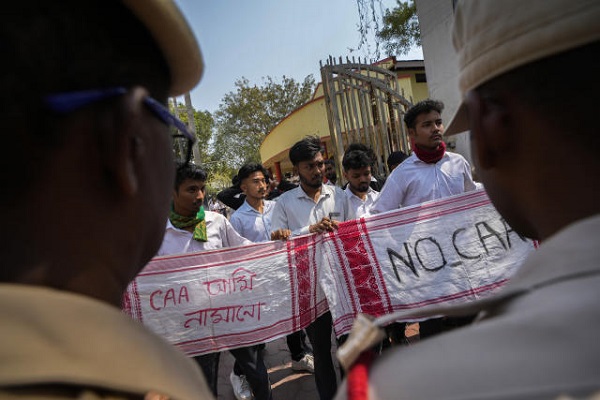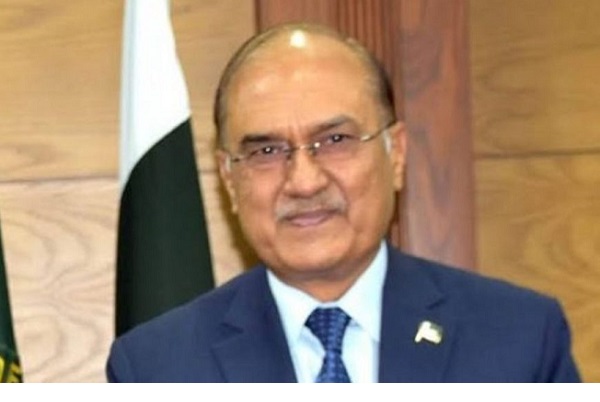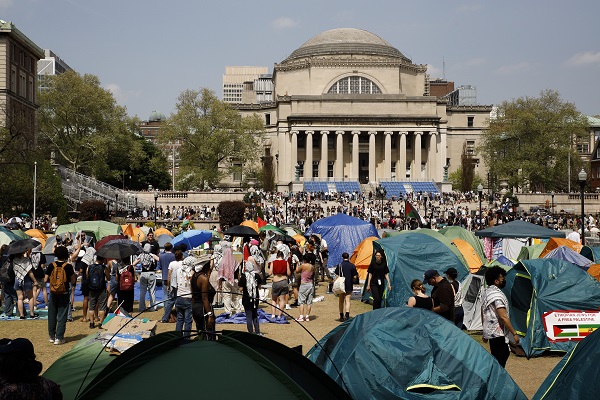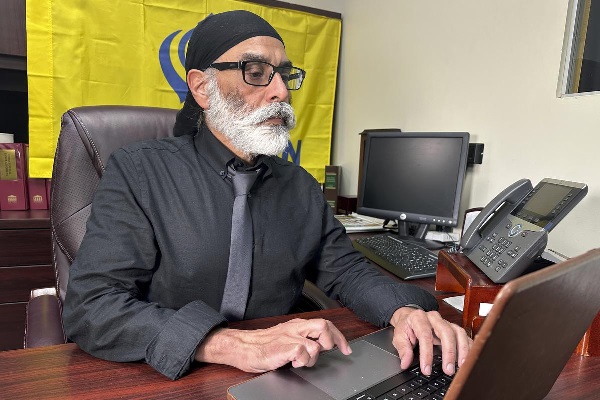ISLAMABAD: Former defence secretary Lt-Gen (r) Naeem Lodhi has proposed an end to incendiary discourse against institutions,
WASHINGTON: The US government and the United Nations on Tuesday expressed concerns about a contentious religion-based citizenship law in India, with the UN calling the legislation “fundamentally discriminatory in nature.
Rights advocates have criticized the 2019 Citizenship Amendment Act (CAA) - which the Indian government moved to implement on Monday. Human Rights Watch and Amnesty International say it discriminates against Muslims.
Just weeks before Indian elections, Prime Minister Narendra Modi’s Hindu nationalist Bharatiya Janata Party (BJP) government has been pushing to implement the law, which makes it easier to get Indian citizenship for non-Muslim refugees from three Muslim-majority South Asian nations: Afghanistan, Pakistan and Bangladesh.
Rights groups note the law leaves out Muslim minority groups like Shia Muslims from those countries while also excluding neighboring countries where Muslims are a minority, like the Rohingyas in Myanmar.
“As we said in 2019, we are concerned that India’s Citizenship (Amendment) Act 2019 (CAA) is fundamentally discriminatory in nature and in breach of India’s international human rights obligations,” a spokesperson of the Office of the United Nations High Commissioner for Human Rights told Reuters.
He added the office was studying whether the law’s implementation rules comply with international human rights law.
“We are concerned about the notification of the Citizenship Amendment Act on March 11. We are closely monitoring how this act will be implemented,” a U.S. State Department spokesperson told Reuters separately.
“Respect for religious freedom and equal treatment under the law for all communities are fundamental democratic principles,” the State Department spokesperson added in an email.
Activists and rights advocates say the law, combined with a proposed national register of citizens, could discriminate against India’s 200 million Muslims - the world’s third-largest Muslim population. Some fear the government might remove the citizenship of Muslims without documents in some border states. Modi’s government did not implement the law following its 2019 passage as protests and sectarian violence broke out in New Delhi and elsewhere. Scores were killed and hundreds injured during days of clashes.
The Indian government denies the law is anti-Muslim and says it was needed to help minorities facing persecution in neighboring Muslim-majority nations. It has called the earlier protests politically motivated. The Indian embassy in Washington did not immediately respond to a request for comment on the State Department and the UN human rights office reactions.
You May Also Like
NEW YORK: Columbia University began suspending student demonstrators on Monday after they defied an ultimatum to disperse.
WASHINGTON: Senior officials of India's notorious Research and Analysis Wing (RAW) have reportedly been involved in approving the






